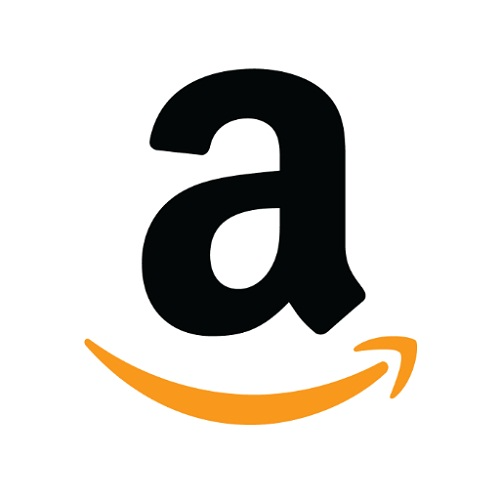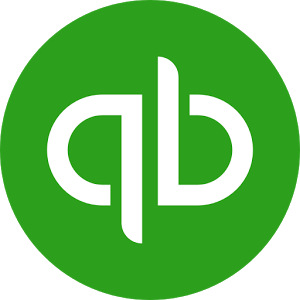How I Have Scaled Our Content Writing Service Business To 2X Revenue And A 38% YoY Growth
Hello! Who are you and what business did you start?
My name is Narcis and I’ve been the CEO and Manager of Content Refined for 3 years. We’re a fully managed content writing service working with a variety of both B2C and B2B clients, including affiliate site owners, e-commerce stores, and marketing agencies.
We focus on creating content strategies and delivering high-quality content that helps site owners rank for target keywords organically. This means more organic traffic and eyeballs on their sites.
Content will always be King … no matter what anyone else tells you. It’s what every site needs to provide value to its audience. We’ve been able to create a streamlined procedure around this to deliver content quickly to our clients and help them significantly grow their traffic month over month.
Over the last 3 years, we’ve been able to almost double our revenue (76% growth) and keep profit margins healthy, while expanding our clientele.

What's your backstory and how did you come up with the idea?
Unlike most of the stories you’ll read here, I was not one of the founders of Content Refined. I was brought in to manage the business and was able to grow it consistently over the last 3 years. The business had done so well that we were eventually acquired by a larger content agency, Crowd Content, in May 2022.
Although I didn’t come up with the idea, I was able to implement new procedures and increase our clientele. At the time, I did have some background in online marketing and keyword research, but anyone familiar with the world of SEO knows that this is an always-changing ecosystem - which I love.
Always be on the lookout for new opportunities to expand revenue and make your business more efficient.
It brings rise to implementing new processes and challenging yourself to find that extra edge over your competitors. Before Content Refined, I was the operations manager for a crypto startup, and before that was the business development head at a non-profit. So my experience in management was useful here.
Take us through the process of building the first version of your product.
Again, because I wasn’t a founder, I didn’t design or create the services we have today, however, I was able to optimize our procedures and ramp up production. What makes us different from other content providers is our hands-on/hands-off approach to clients. Let me explain a little more.
All of our services are fully managed, which means we do keyword research, content planning, writing, editing, optimization, and publishing for all our clients. This process is very hands-on for us, and very hands-off for our clients - which people love!
The best part about launching lean is that failing is relatively cheap to do.
One of the biggest struggles site owners run into is capacity limits. The online world is dominated by content - which means creating a lot of it quickly puts you ahead of the competition (as long as the content is good quality and provides value). Most site owners or business owners don’t have the time or capacity to do this themselves. And if they do, they’ll eventually hit a wall.
That’s why I’ve built our services to be completely hands-off for the clients. We do all the grunt work for you and do it well-meaning the content we write ranks for target keywords in your niche. As a business or site owner, if you can outsource a task that provides real results to your business, then it’s always worth the investment.
Since launch, what has worked to attract and retain customers?
Since taking over Content Refined, the two biggest questions I’ve always asked myself are “How do we continue to retain customers” and “How do we attract new customers”. These are pretty common questions I’m sure almost every business owner asks themselves daily.
Our services are based on three key factors:
- Are we delivering quality content?
- Are we delivering content on time?
- Is our content performing well?
If the answer to all three of these questions is “yes” then retaining customers is easy! So, rather than trying to answer “How do we retain customers” I focused more on making sure the answer to the three questions above was always “yes”. In other words, I’ve found that if your procedures are tight, then retaining customers is automatic.
Of those three questions, the biggest hurdle was always the third one. Although there are procedures and guidelines to take to rank your content organically, there’s never a guarantee. There’s no secret code to how Google ranks sites in its search engine - there is an algorithm, but it’s not openly shared, and it’s constantly changing. So our goal is to always stay within these guidelines.
And when content isn’t performing well, then we adjust the strategy. In other words, we’re always in a mode of “adapt or die”. Ultimately, providing a sound content strategy along with valuable content will always help drive organic traffic for our clients.
Although we’ve tested out ads and other marketing efforts, the traditional stuff has never worked for us. Why? Because when you have an agency writing content for your website, you need to trust them. When attracting new clients, I’ve found that word of mouth and referrals have always been best, especially in smaller communities like the affiliate niche site space.
My two rules for attracting new customers are:
- Show them who you are - I always get on a Zoom call to talk to new clients. This makes them feel a lot more comfortable about using our services.
- Provide instant and real advice - this not only shows them you know what you’re talking about, but giving up some initial free advice builds a lot of trust.
How are you doing today and what does the future look like?
We’ve just come off our most profitable year ever, and are expecting more growth for 2023. With the popularity of AI and ChatGPT, we’ve also started implementing new procedures and testing out ways we can incorporate AI into how we create or think about content. The next few years will be very exciting and very different in terms of how we look at content.
Here’s a quick breakdown of the business:
Margins: approx 55%
Ad costs: N/A
Monthly traffic: approx 5k/month
Email subscribers: 5,300
YoY growth since 2020: +38% YoY
At the moment, we’re not doing any direct advertising, however, we are collaborating with some partners and affiliates to help promote our brand to relevant audiences.
Our short-term goals are to continue providing quality content that performs, which in turn will help retain our current clientele. We’re also focusing more on brand awareness and becoming thought leaders in our industry.
Our long-term goals are to test and implement new procedures around AI - what those procedures will look like is tougher to predict. Although, like any company, we do have long-term goals, within the SEO world it can be a little more difficult to think too far ahead.
Right now, our biggest focus is on improving our procedures through the use of AI - but because this is going to be a drastically changing process, knowing exactly how we’ll do that will always be in flux. We’ve already begun implementing AI procedures and utilizing them to make ourselves more efficient and amp up the quality of content.
Through starting the business, have you learned anything particularly helpful or advantageous?
Definitely. Here are a few things I’ve learned that hopefully, others can use.
Stay lean. Don’t get bogged down or sidetracked by flashy or expensive tools that you don’t need. Most online businesses just need the basics - a website, a G Suite account, and a payment platform. Do your research and find cheap or free alternatives before committing to something. And before you do commit, ask yourself, “Do we need this?” and “Is using this tool going to increase our revenue?”. Most of the time, you don’t and it’s not.
Put the right people in the right seats. Surround your business with the right people for those roles. Don’t hire someone just because you like them or because of their credentials. Ask yourself if they fit that particular role (or seat) well. If not, then you’re not doing yourself or them a favor by putting them there.
Find opportunities, build procedures, implement, and delegate. Always be on the lookout for new opportunities to expand revenue and make your business more efficient. Once you find them, build a procedure, implement it, and then delegate. Emphasis on the last point here, as that’s where my weakness is. Putting too much on my plate at once has led to inefficiencies and is something I’m working on. This also goes back to the “right people, right seats” point - if you have the right people in the right roles, then delegating should be easy.
Always say yes. When you’re offering a service, the answer to “Can you do this?” is always yes. Even if you don’t have the procedures or tools in place. Just say yes and figure out a way to implement and deliver. In the best-case scenario, you’ve just expanded your service offering, revenue, and clientele. Worst case, you learn that your business isn’t right for that particular customer or service offering and can now focus on your core services again. Either way, it’s a win-win.
What platform/tools do you use for your business?
Our main list of tools and their uses are:
G Suite - email communication, calendars, bookings, and sharing documents (both internally and externally). By far the most “bang for your buck” tool we use.
Marketmuse - used for content creation, optimization, and briefs.
Frase - used for content creation, optimization, and briefs.
Ahrefs - used for keyword research and SERP analysis.
Service Provider Pro (SPP) - used for front-end payments and tracking orders.
Stripe - used for payments.
Trello - used for internal order tracking and delivery.
Slack - used for internal team communication.
Zoom - used for calls.
TeamPassword - used to store logins and passwords securely.
What have been the most influential books, podcasts, or other resources?
Here are a few of my favorite books for business owners and/or entrepreneurs:
The E-Myth by Michael Gerber - a great beginner’s book for any business owner or entrepreneur that goes over the myths of starting and running a business.
The Lean Startup by Eric Ries - this helped me change my mindset on how to execute and launch something quickly and efficiently without needing to get it “perfect”.
Eat That Frog! by Brian Tracy - a must-read for anyone that suffers from procrastination.
Traction by Gino Wickman - from having a vision to putting people in the right seats to implementing procedures effectively, this book covers it all. I read it almost once a year - this should be any manager’s bible for business.
Never Split the Difference by Christopher Voss and Tahl Raz - One of my favorite books on how to better your negotiation skills (and also a really fun read).
The Obstacle is the Way by Ryan Holiday - this helped me build grit and resilience and how to approach difficult situations.
Advice for other entrepreneurs who want to get started or are just starting out?
There’s probably a giant list of learnings and takeaways that I and many other managers/owners/entrepreneurs could provide, but if I had to narrow it down to a few, they would be:
Launch your MVP (minimum viable product) and hit the ground running. Don’t wait to perfect your product or offer - get it to a point where it’s viable and start selling. If it’s a service, then build out the basics of it, start selling, and adjust from there.
A lot of entrepreneurs get bogged down in perfecting their offering or making sure they’ve covered all their bases - do that later. Most of the time, the answers to these questions are revealed by your audience’s needs anyways.
If you’re building an online business, launching and staying relatively lean is easy. I know I already mentioned the “stay lean” part earlier, but with the amount of easily accessible (and cheap) tools and freelancers available today, building an online business can be done within a month (at most).
Coming up with the idea is hard, but once you know what you want to do, lay out the plan, get the tools you need (most of which would probably be free or very cheap), hire some freelancers to get it off the ground (again, cheap), and launch.
And to go along with this point, don’t be afraid to fail. Learn from your mistakes, go back and try again, or pivot. The best part about launching lean is that failing is relatively cheap to do.
Where can we go to learn more?

Download the report and join our email newsletter packed with business ideas and money-making opportunities, backed by real-life case studies.

Download the report and join our email newsletter packed with business ideas and money-making opportunities, backed by real-life case studies.

Download the report and join our email newsletter packed with business ideas and money-making opportunities, backed by real-life case studies.

Download the report and join our email newsletter packed with business ideas and money-making opportunities, backed by real-life case studies.

Download the report and join our email newsletter packed with business ideas and money-making opportunities, backed by real-life case studies.

Download the report and join our email newsletter packed with business ideas and money-making opportunities, backed by real-life case studies.

Download the report and join our email newsletter packed with business ideas and money-making opportunities, backed by real-life case studies.

Download the report and join our email newsletter packed with business ideas and money-making opportunities, backed by real-life case studies.













































